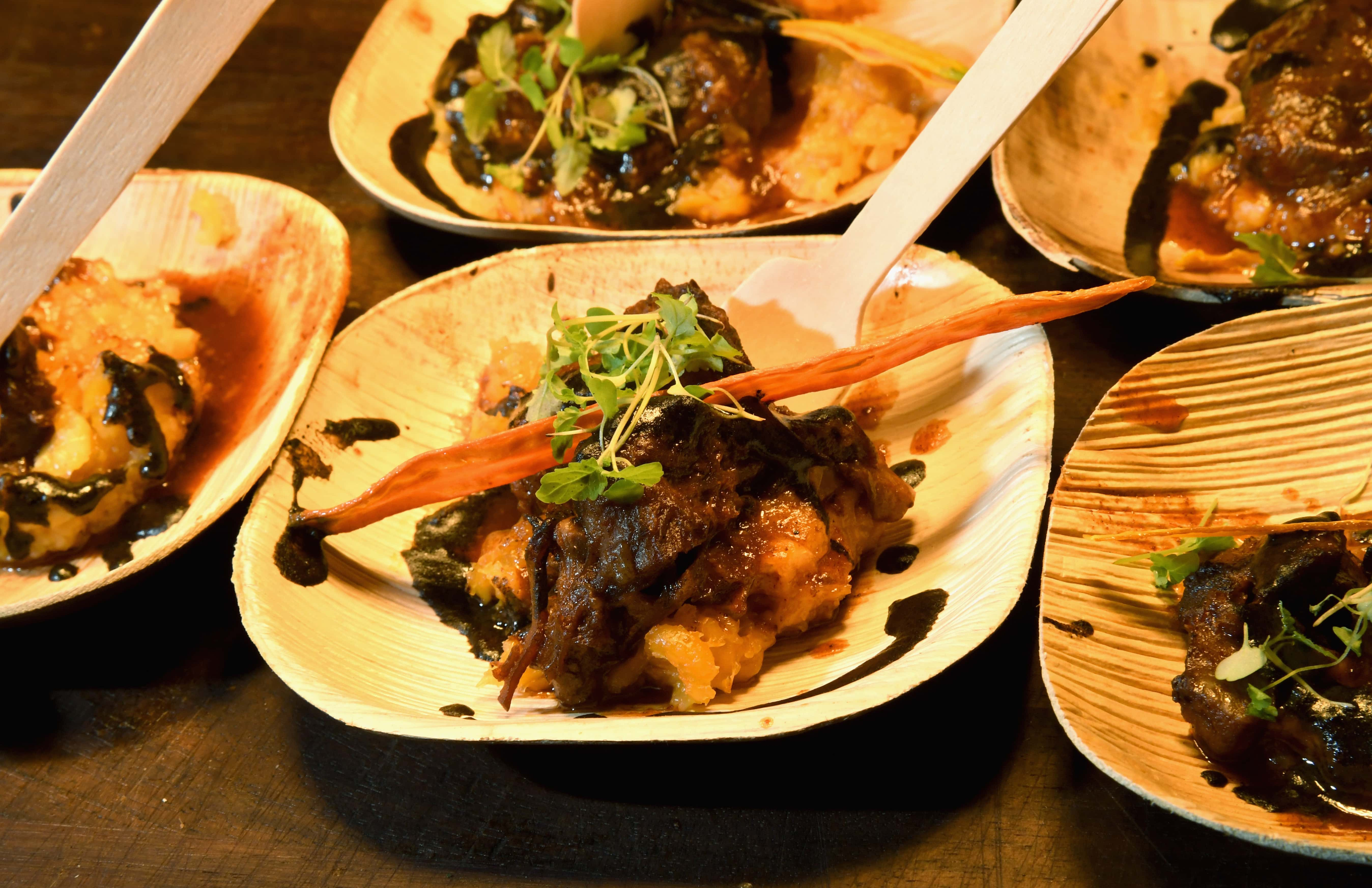Alison Roman and Columbising: Food cultural appropriation isn't new, Jamie Oliver, Gordon Ramsay and even you do it

There is a fine line between inspiration and cultural appropriation when it comes to food -- New York Times columnists Alison Roman's propensity to do the latter is being brought up again after her recent comments on internet favorites, Chrissy Teigen and Marie Kondo.
Roman's comments drew scathing criticism for targeting successful women of color. Many took to social media to ask why Roman had not similarly targeted Martha Stewart or Rachel Ray.
Her comments also reminded many of a previous controversy she was embroiled in, popularly termed #TheStew controversy. The stew in question is the spiced chickpea stew with turmeric and coconut, for which she wrote the recipe in the New York Times.
Despite using Asian ingredients such as those mentioned in the title and other spices, Roman insisted that her stew was not a curry. In an interview with Jezebel, she said, "I’m like y’all, this is not a curry...I’ve never made a curry, I don’t come from a culture that knows about curry,” Roman explains, with an air of exasperation.“I come from no culture. I have no culture. I’m like, vaguely European.”
However, that criticism was taken into account and her recipe had since been modified to say, "Spiced chickpeas are crisped in olive oil, then simmered in a garlicky coconut milk for an insanely creamy, basically-good-for-you stew that evokes stews found in South India and parts of the Caribbean."
Many also pointed out how Roman had capitalized off of Vietnamese cuisine and had led an expensive, paid tour in Vietnam despite - you guessed it - not being Vietnamese. One user tweeted, "I’ve always found Alison Roman problematic. She made a career out of dumbing down Asian recipes to cater to white people’s palette and even led an overpriced culinary tour in Vietnam. The irony of her attacking two successful Asian women is not lost."
Roman isn't the first to culturally appropriate cuisines

Of course, Roman's instances of inspired culinary adventures are nothing new and it is not limited to cuisines alone. The trend sparked the term "columbising," which Urban Dictionary defines simply as, "the art of discovering something that isn't new."
A blogger from Middlebury College gives a more detailed definition: "A facetious term that alludes to Christopher Columbus and is meant to reference the ways in which white people can at times falsely/errantly 'discover' cultural products, practices and/or traditions that are foreign and novel for them yet have years, decades and/or centuries of history within other cultural groups, for example, foods (e.g. phở) or hairstyles (e.g. cornrows)."
Perhaps the more famous instances of celebrity chefs finding success from recipes that are not credited to other cultures include Jamie Oliver and Gordon Ramsay. Last year, Ramsay drew criticism for opening an Asian restaurant without an Asian chef at the forefront of the operation.
The year before that, Oliver launched a new rice product and gave it the name Punchy Jerk Rice. In response, Member of Parliament, Dawn Butler tweeted, "#jamieoliver @jamieoliver #jerk I'm just wondering do you know what #Jamaican #jerk actually is? It's not just a word you put before stuff to sell products. @levirootsmusic should do a masterclass. Your jerk Rice is not ok. This appropriation from Jamaica needs to stop."
British retailer Marks and Spencer was called out for selling new varieties of "curry sauce." One user tweeted, "I grew up in Bengal, head back regularly and I have no idea what Bengali Turmeric Curry is. With celery seeds, tamarind and coconut no less. Can someone please enlighten me?"
Ramsay has also drawn criticism for his National Geographic show, 'Gordon Ramsay: Uncharted' for capitalizing off of local chefs. One food writer wrote, "Let’s not forget the bit about ‘local food heroes’ – but why not ask the said heroes to front their own TV show? Why does it take a white chef to ‘discover’ their cuisine and present it as if it were a spectator sport?"
However, the issue of "columbising" cuisines is much more prevalent. There was the time when a white Philadelphia chef told people the "correct" way to eat Vietnamese pho in a Bon Appétit video which had since been taken down. There are food trucks and plenty of restaurants run by non-POC (people of color) but peddle Asian and Mexican cuisines. Even the average person stuck at home during lockdown measures and making Dalgona coffee can be accused of culturally appropriating.

Even whole nations are doing it! Israel has been accused by many of appropriating Palestinian and Lebanese cuisines. When Israeli chefs took Middle Eastern and Levantine foods such as shakshouka, hummus, falafel, and even shawarma and called them Israeli, Palestinians felt they were being stripped of their culture.
Is there a right way to do it?
Culture is not sedentary, and neither is a region's cuisine. After all, Italy would not be famous for dishes like pasta and pizza had Spanish conquistadors not brought back a key ingredient - tomatoes - from South America in the 16th century.
As Roxana Hadadi writes for Pajiba, "It’s the bare minimum to do even a fraction of what Anthony Bourdain did on 'No Reservations' or 'Parts Unknown', or what the latter seasons of 'Chef’s Table' have done, or what Samin Nosrat does in 'Salt Fat Acid Heat', or what Nadiya Hussain is doing with her new show 'Time to Eat': acknowledging how our history shapes our food."
Many reflect on their culture through food primarily - and history plays a big part in shaping it. Take Boba tea for example -- the bubble tea originates from Taiwan. However, the British introduced milk tea to Taiwan during their colonizing days.
But there is a colonial history behind tea as well. When the British first started making tea in India during colonial times under Queen Victoria's rule, they exploited Indian labor, often subjecting them to inhumane treatment.
The problem with food cultural appropriation arises when white chefs and columnists "columbise" the cultures of the nations their ancestors exploited. There are no gatekeepers to cuisine, but these chefs need to acknowledge where they get "inspiration" from.










